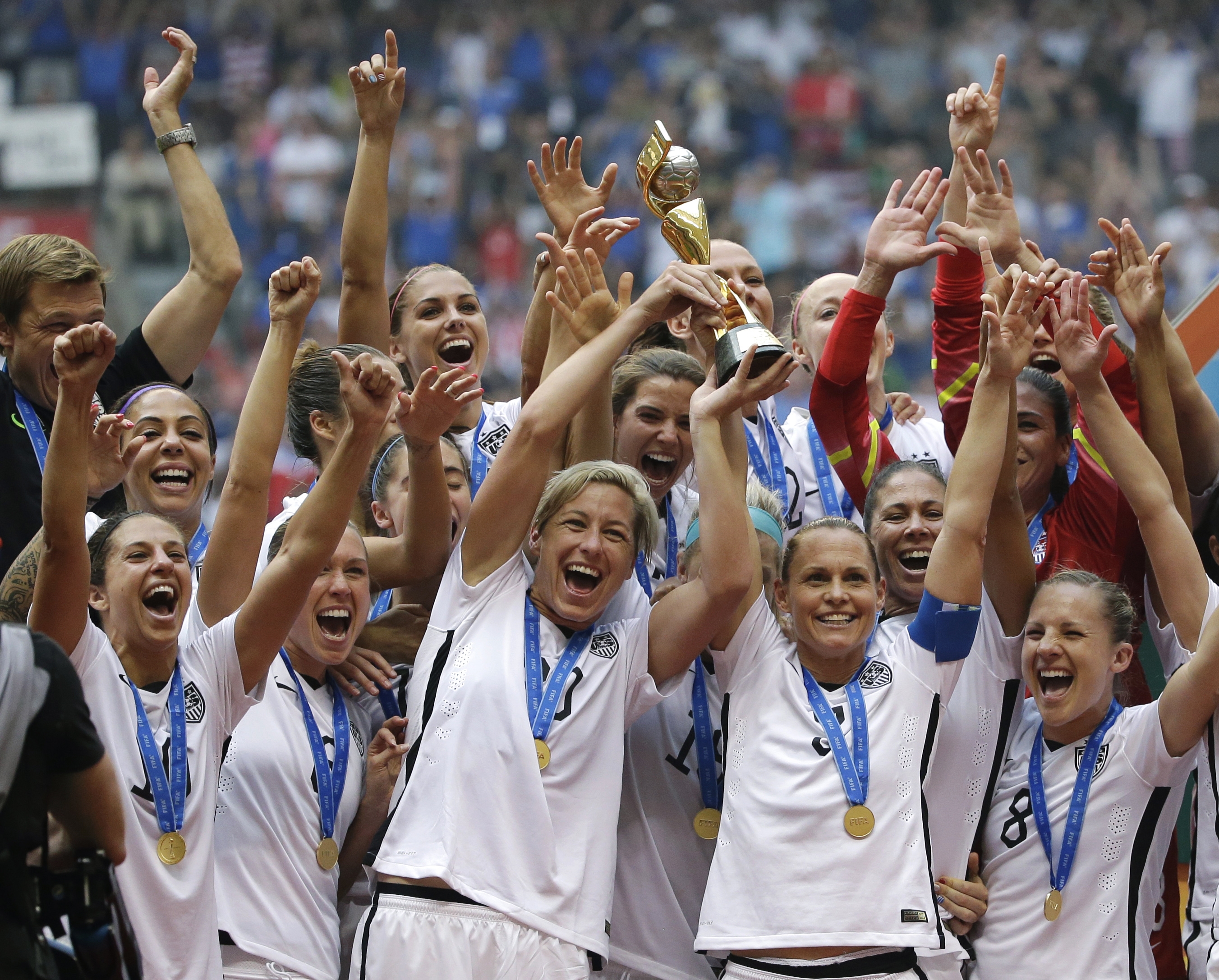The U.S. women's soccer team is blaming the wrong evil federation
USSF is just a stooge for FIFA


A free daily email with the biggest news stories of the day – and the best features from TheWeek.com
You are now subscribed
Your newsletter sign-up was successful
Long-simmering tensions in the world of U.S. women's soccer boiled to the surface on Thursday when five prominent members of the national team filed a wage discrimination complaint against the U.S. Soccer Federation. Over the years, women soccer players in America have endured slights male players have not, such as poor accommodations (complete with bedbugs in one instance) and cheap fake turf. But the pay issue, right on the heels of the national women's team World Cup victory in 2015, appears to have been the final straw.
"I think we've proven our worth over the years," team co-captain Carli Lloyd told NBC. "The pay disparity between men and women is just too large, and we want to continue to fight."
On the matter of the national women's team specifically, it's hard to argue the point. They're projected to bring in over $5 million more in revenue than the men's national team in 2016, and the gap is anticipated to widen in 2017. Nevertheless, the women were paid about four times less than the men.
The Week
Escape your echo chamber. Get the facts behind the news, plus analysis from multiple perspectives.

Sign up for The Week's Free Newsletters
From our morning news briefing to a weekly Good News Newsletter, get the best of The Week delivered directly to your inbox.
From our morning news briefing to a weekly Good News Newsletter, get the best of The Week delivered directly to your inbox.
But while the players have a legitimate grievance, they might be aiming at the wrong target.
Let me explain. Both the women's national team and men's national team are run by the United States Soccer Federation (USSF), the non-profit organization that's the focus of the complaint. The USSF provides the pay for the players on the two teams, but it gets most of its revenue from FIFA, the international federation that handles soccer worldwide.
FIFA, in turn, makes most of its money from the television contracts it sells around the world for the right to broadcast its events. "They've always emphasized the male world cup when they sell their television rights," Andrew Zimbalist, an economist at Smith College who has written extensively on sports, explained to The Week. And there FIFA also devotes a vastly greater share of its resources to the male side of the sport.
Already infamous for its corruption scandal last year, FIFA is who Lloyd and company should be targeting.
A free daily email with the biggest news stories of the day – and the best features from TheWeek.com
Here's further damning proof: FIFA awarded the U.S. national women's team $2 million for their 2015 World Cup win. But it gave the German men's team $35 million for winning the World Cup in 2014, and $8 million to the U.S. men's team for losing in the first round that year.
As a result, USSF president Sunil Gulati "is in the awkward position of getting all this money for the male World Cup that he then shares with the male team, and very little money for the female cup. So he has to kind of find new money for the women," Zimbalist said.
Because there are other sources of revenue as well, like tickets, you could argue that the women's national team, and the female side of the sport in America in general, is held back by insufficient fandom and sponsors. But the latest revenue numbers clearly put the women's national team ahead of the men's. The biggest reason for the pay discrepancy is that the international flow of resources is grossly skewed. "On the one hand, I think the women are right," Zimbalist continued. "On the other hand, most of the actual revenue sources come from FIFA, and they're distributed overwhelmingly to the men's side."
As of 2014, FIFA was holding roughly $1.5 billion in cash reserves. The organization argues it needs at least some of that money as insurance against the possibility of a canceled World Cup. Bringing the full scope of the World Cup pay for the women's team in line with the men's team would require something in the vicinity of $24 million; about 1.6 percent of FIFA's reserve.
That said, the USSF has operated with a budget surplus of at least $9 million over the last few years. So it has a little room to maneuver as well.
"FIFA will argue that the men's tournament generates 20 or 30 times more revenue, so they shouldn't pay the women more," Zimbalist explained. "That's what FIFA's position has been historically. It might change under their new leadership."
For the moment, "it's a chauvinist organization," he said flatly.
Jeff Spross was the economics and business correspondent at TheWeek.com. He was previously a reporter at ThinkProgress.
